Interview with Roz Morris - 2022
Interview #9 (fiction, science fiction, sci-fi, dystopian fiction, novel)
Roz Morris is a novelist, memoirist and writing coach. She’s taught masterclasses at international events and for The Guardian in London. She’s a story consultant for a thriller publisher in Dublin and a regular panelist on the Litopia YouTube show Pop-Up Submissions, with literary agent Peter Cox. She’s acclaimed for her own novels, My Memories of a Future Life, Lifeform Three (longlisted for the World Fantasy Award), and Ever Rest. She’s also the secret hand behind ghostwritten books that have sold more than 4 million copies. Keep up with her at https://tinyurl.com/rozmorriswriter
Randal Eldon Greene: Hello, Roz Morris.
When I picked up Lifeform Three, I went into it blind. All I knew is that I wanted to read it because you had written it. I was expecting sci-fi, and I got the sci-fi I was looking for. What I didn't expect was a boy and his horse story. Or I should say, a robot and his horse story. It was such a delightful twist on the genre. What inspired you to take the classic boy (or girl) and his horse tale and give it this science fiction setting?
Roz Morris: What a great question. In answer, several things. When I was a kid I devoured pony books. What I loved was the relationships with these animals, how we figure them out and they figure us out - and if we’re lucky, we develop a bond. Then I discovered Gavin Maxwell and his memoirs about keeping otters in the wilds of Scotland. He’s a beautiful writer; he made you feel how these animals are so full of instinct and emotion, intelligent, dignified, expressive, busting with physical life, so very much themselves. I wanted to write a story that did this for horses.
I actually have a horse (which is a perilously expensive hobby for a freelance writer). Riding through the woods, I thought how I see them through the horse’s senses because I can feel what he’s responding to. A scary shape in a fallen tree, a long hill that looks tempting for a canter. Together we become a new gestalt creature - my brains and his instinct and power. I also wondered how we would use these places in the future, if people would still value a meadow or a forest or a stream, or a beautiful view of the autumn trees. Or if we would still have them, especially as we retreat further and further into our phones and machines.
I foresaw a future where our phones were programming us, telling us what to think and say, all driven by advertising - and it has now come true. Our phones - which are marvellous devices - are spying on us, to find out what we like so they can show us adverts. They suggest what they think we would like, and that’s convenient so we let them, and they are altering our thinking and behaviour in all sorts of ways. In Lifeform Three, the humans are programmed, like robots - and this is now happening to us.
Science fiction often asks what humanity actually is. Especially robot or android stories. Think of Blade Runner, where the replicants are living fuller emotional lives than the people who made them. So I thought I’d take a robot, a completely programmed intelligent being, and transform him so he becomes more human than the humans, because of his connection with a horse.
Randal Eldon Greene: Your descriptions of the robots (the "bods" as they're called in the book) are almost dollish, with big eyes and fun hair. They remind me of toy trolls in some ways and Jim Henson's Muppets in others. You make no bones about these characters being fully robot, but you don't explore their humanity. You show it. This was refreshing. So many android stories revolve around the tensions of a "thing's" humanity. Paftoo just wants to ride his goddamn horse! Were there scenes or even whole drafts of this novel that focused more heavily on what it meant for this non-human to have human-like drives and desires? And do you even think this is an important question?
Roz Morris: I’m glad you liked the bods! Your imagining of them is spot on - that’s what I had in my mind. Their appearance, I realised, would be dictated by the customers’ preferences, hence they were friendly-looking and cosmetically interesting, to suggest they had fun personalities, but in a way that was safe and acceptable in a servant - which is essentially what the bods are.
I always had the intention of narrating from the perspective of Paftoo. That governed how I showed everything - the things that he found easy, the things he found trying, the things he found baffling.
Randal Eldon Greene: Are there any authors or books that influenced your writing of Lifeform Three?
Roz Morris: Aside from Gavin Maxwell’s Ring of Bright Water and its sequels, there were plenty. Lifeform Three is a classic story about the misfit in an oppressive society, so I paid close attention to George Orwell’s 1984. Orwell draws you into the character’s desperation, his belief that there is a better way to live, but he clearly sees the dangers of stepping out of line. Paftoo is like Winston Smith in this way. He yearns for something better, but he knows the penalty is high if his deviance is discovered. I also studied Walter Tevis’s The Man Who Fell To Earth, for its chilling reminder of what we do to dignified, intelligent creatures that aren’t like us.
Another guiding light was Ray Bradbury’s Fahrenheit 451. This is about a man who is too sensitive for the brutal nature of his world. Like 1984, that gentleness puts him in terrible danger. Fahrenheit 451 is an exquisite work - every scene is influencing the reader in multiple subtle ways, which all make you feel like Bradbury is writing about a person exactly like you. I’ve used it to teach masterclasses about pacing and emotion. Bradbury also has a strong element of nostalgia, of places that we can’t go back to, though we think we would belong there better than we do now.
Randal Eldon Greene: So many stories about the future do focus on repressive societies. Both 1984 and Fahrenheit 451 had totalitarian governments running in the background. Lifeform Three, like many contemporary dystopian novels, seems to imply that it's a kind of capitalistic consumerism that will exert control. Of course, the imagined future you've painted for us is actually about our own society – is an exploration about our disconnect with nature, a comment on device addiction, a vision of our self-definition via the brands we buy.
Do you see any future outside of this kind of toxic capitalism? Or maybe I should ask, do you see a way to write a realistic future that is also not a kind of Capitalist Realism?
I want to be properly outside, notice the weather, the roll of a hillside, the changing colour of a hedge, the insistent patter of rain. I get on my horse, and we go out and experience the world.
Roz Morris: I had several interests with Lifeform Three. One is our state of willing surrender to our devices. They are so seductive. They give us the world in the palm of our hand. Consumerism does that too. It gives us things that make us feel good, or things we learn to desire. Is that an -ism or is it just the human condition?
You mention repression. I’m interested in how that starts - and I think it’s with conformity. Here’s an example. In the last job I had, I was made to waive my rights under the EU working hours directive. Everybody in the company did it, and mostly willingly, from a sense of professional obligation. But think about it - we gave up a right because everyone was doing it. Where does that ultimately lead? It might be positive and supportive, a sense of team spirit. But when does it turn into a bullying, oppressive force, as in 1984, with things you must not think or say?Where does it become ruthless? In Lifeform Three we see this with the treatment of the character Tickets. Also, the way the bods are regularly reprogrammed so they do exactly what their masters want.
Also, as you point out, Lifeform Three is concerned about the disconnect from nature. In the world of Lifeform Three, the natural environment has almost vanished. That’s a genuine worry to me because I value the countryside enormously. We’re incredibly lucky to have our national parks and National Trust estates because if they weren’t protected, there would be much more profitable uses for all that land. We’re also losing contact with our own natures, as physical creatures who are full of feelings and sensations - original feelings that come from experiences. We think a lot, we live in our heads more than our bodies. In some ways, this is necessary because of the qualities we need for civilisation - we need to be analytical and intellectual. But this way of being is exacerbated by our devices. They feed us amazing things - music, pictures, videos - and as a consequence, we’re more used to seeing and hearing through them than through our own senses.
I have my own little rebellion against this. I love the internet, but I leave it at home. My phone can do only text and calls. I frequently get laughed at for this. I don’t for one moment want us to unplug. I need the World Wide Web as much as anyone. But when I leave the house, I leave online behind. I want to be properly outside, notice the weather, the roll of a hillside, the changing colour of a hedge, the insistent patter of rain. I get on my horse, and we go out and experience the world.
You asked if I see any future outside of this kind of toxic capitalism? Is this capitalism always toxic? After all, there are great benefits as well as harms. Look at the Bill Gates Foundation. Much depends on how we use it. Here’s where fiction can play what-if, remind us where to be careful.
I think there are many possible futures, even within our own planet - the future of North Korea will not be like the future of the US (at least I hope not). The future you see depends on where you are.
It also depends who you ask. Ask a physicist to envisage a future world, and they’ll be looking at self-drive cars, new power sources and evolved uses for AI. Ask a medical researcher and they’ll tell you about longevity and the diseases that will become problematic. Ask an economist and they’ll wonder how we will afford it all and who the new rich and the new poor will be. So we all have our own corners of the future that we’re imagining. Ask a novelist, and they’ll wonder what the people are like, how they behave, what pressures they live with, what kinds of rules that creates, what difficult choices they make. That’s the future I investigate in Lifeform Three.
Randal Eldon Greene: You seem to balance ideas and characters perfectly in this novel. I'm wondering which you find more satisfying and which you create first — the themes or the characters those themes revolve around?
Roz Morris: Thank you! I’m interested in it all. And story too. I like theme to arise naturally out of all the elements of the book - the characters, the problems they face, the setting and the language. I look for characters whose deepest natures will be challenged by those themes. Then I try to create an experience where all of this works together, like a symphony, and the reader can bask in it all, or tune into the parts they most respond to. For some it’s the plight of the person who doesn’t fit the rules, or who yearns for something more meaningful. For some, it’s the bond with horses or a need to preserve special places from the past. For some, it will be the questions about privacy, and individuality, and climate change, and how we’ll use technology and how it will use us.
With Lifeform Three, it probably started with a place I would be sad to lose. So it came from me, from my feelings. I thought of a character who felt this loss and needed to resolve it.
Randal Eldon Greene: You're not only a writer, but also a writing coach and teach creative writing. Tell us a little bit about that.
Roz Morris: I love teaching! I do a lot of coaching and developmental editing, particularly with writers who have a troublesome manuscript they don’t want to give up on. I love figuring out how to help them dig for the book that’s somewhere in the pages and in their souls. I used to do a lot of work for a literary consultancy, which showed me the problems that people generally have when they self-edit and revise, and I amassed such a fund of experiences that I made them into books - the Nail Your Novel series. Because of those, I was invited by The Guardian newspaper to give a series of masterclasses in creative novel revision. I’ve also taught classes in writing craft at Jane Friedman’s online portal, and I critique manuscripts on a show called Pop-Up Submissions, with literary agent Peter Cox and the Litopia writing community. I enjoy teaching and critiquing - it’s very creatively stimulating. Even if I teach material I’ve taught before, the student questions always take a fresh direction and make me look at my craft in new ways.
Randal Eldon Greene: Do you work on fiction and nonfiction simultaneously? What is your workaday writing life like?
Roz Morris: My writing routine is largely dictated by my editing work - editing clients have deadlines, so I prioritise their needs, then write and edit my own books in the gaps.
Each book I write has three stages, whether fiction or non-fiction. The first is gathering. I muse and mull, and throw ideas into text files. Gradually a shape emerges, and a sense of creative urgency. That’s when I’m ready for detailed planning or even drafting.
At that point, I’ll start clearing time for the book. At first I’ll be satisfied with short snatches, and they will usually be first thing in the morning, when dreams are still lingering in my brain. Then the work will simmer behind everything else I do in a day - whether working on a client’s book, or writing material for my blog or newsletters, or watching a film, or going for a run in the woods. This is the point where pieces of music start to echo the book back to me, and I get strange and unexpected breakthroughs.
Gradually, the book grows bigger and richer, until I need to give it my heart and soul, and that’s the stage where I’ll arrange my editing projects to give it proper space.
Randal Eldon Greene: Are you writing a new book now? If so, what stage of your personal writing routine would you say you're in at the moment?
Roz Morris: My answer…
I published a novel, Ever Rest, in June and I’ve been gradually emerging from that. I have to let go of its characters and themes and world, but for many months after publication I wanted to keep writing about them. I guess it’s like a relationship - its rhythms become part of your life. Writing it took me seven years, so extracting myself is a long process.
But I have been collecting for another novel. I’m in the first phase. It’s slowly colonising my thinking. Just yesterday, actually, I had an idea that I realise resonates surprisingly with other elements I’ve collected.
Randal Eldon Greene: It always makes me happy when I hear a writer's ideas are coalescing well. It sounds like you might be extricating from Ever Rest. However, do tell me a little bit about the book.
Roz Morris: With Ever Rest, I was inspired by stories of people who fall into glaciers and remain there for decades, until the ice releases them. Meanwhile, everyone who knew them is getting older.
In Ever Rest, a man falls while trying to summit the mountain and his body can’t be recovered. Twenty years later, he’s still there, in the ice, and the people who knew him can’t move on. Also, he was the singer in a rock band, and his music keeps him alive for the whole world. Everywhere, there are videos of his performances, or recordings of his voice, and he’s beautiful and full of youth, which is how everyone imagines he is, suspended there in the glacier. This adds to the agony for the people who actually knew him.
It’s a story about lost loves, friendships, remarkable times that bind us to each other, fame, the music industry, mountain climbing, the music that tells you who you were when you were a teenager. So his fans are waiting for him, and his friends are waiting for him… and until he comes, they will not ever rest.
Randal Eldon Greene: Why do you think it took you so long to write Ever Rest?
Roz Morris: Several reasons. First, there was a massive amount of factual research. I’ve been reading about high-altitude mountaineering for decades, but to write convincingly in that world, and to create a surprising plot, I needed to study in depth. I also had to study the music industry - and in two very different eras, because some of the action takes place in the early 1990s, some is 2014. I loved this research because both worlds interest me deeply, but I needed time to feel like a native there.
Then there was the poetic development. The idea always seemed full of power, and I needed a long time to explore and understand what it was telling me - the people waiting, revisiting their past hopes and dreams, needing to move on and also not wanting to.
I’m not a slow writer, but I’m a slow performer. If I was a musician, I’d make intricate studio albums, chasing something profound and unexplainable, honing every tone and harmony until the listener experiences what I feel in my heart.
Randal Eldon Greene: What a wonderful way to put it. I, too, am a slow performer, though a constant and consistent writer.
Now, as a writing coach and author, do you have any words of advice for any fellow writers reading this interview?
Roz Morris: You might know immediately what you want your book to be. In that case, go forth, do your thing as well as you can and be proud of it. Or it might take you a while - like me. In that case, don’t be afraid to experiment, to be different, to take your time. Let it unfold. There will come a time when the book seems to find itself, to tell you what it wants to be. Then lock on and follow.
Randal Eldon Greene: Thank you so much for your time, Roz.
Roz Morris: And thanks for a thoroughly interesting conversation!
Purchase Lifeform Three on Amazon
© 2021
About the interviewer:
Randal Eldon Greene is the author of Descriptions of Heaven, a novella about a linguist, a lake monster, and the looming shadow of death. His typos are tweeted @AuthorGreene and his website is AuthorGreene.com

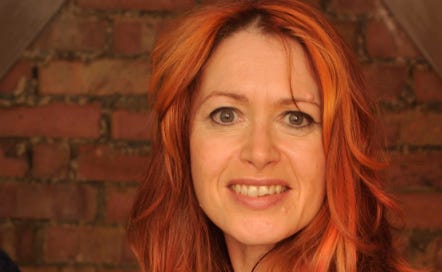



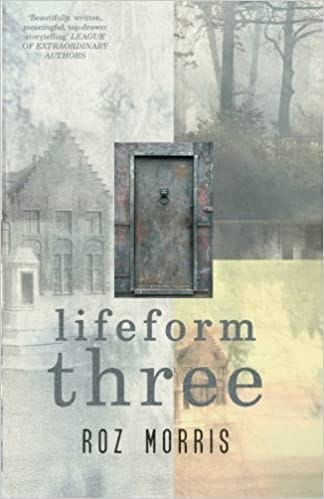
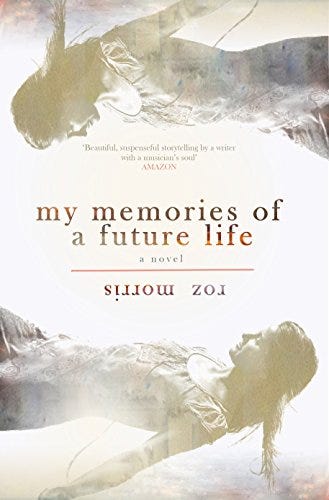
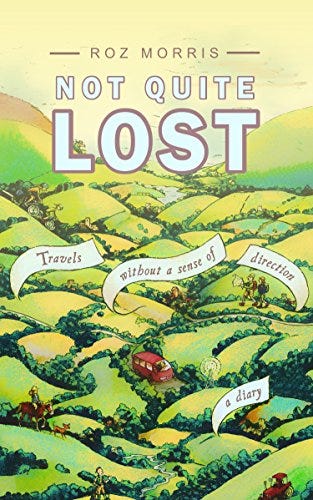
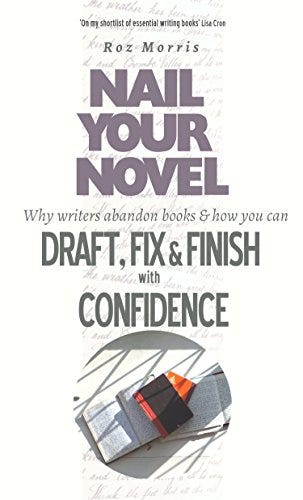
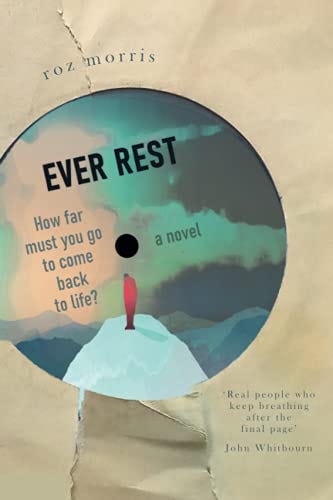
Loved hearing more about your process Roz, having read all three of your books last year.